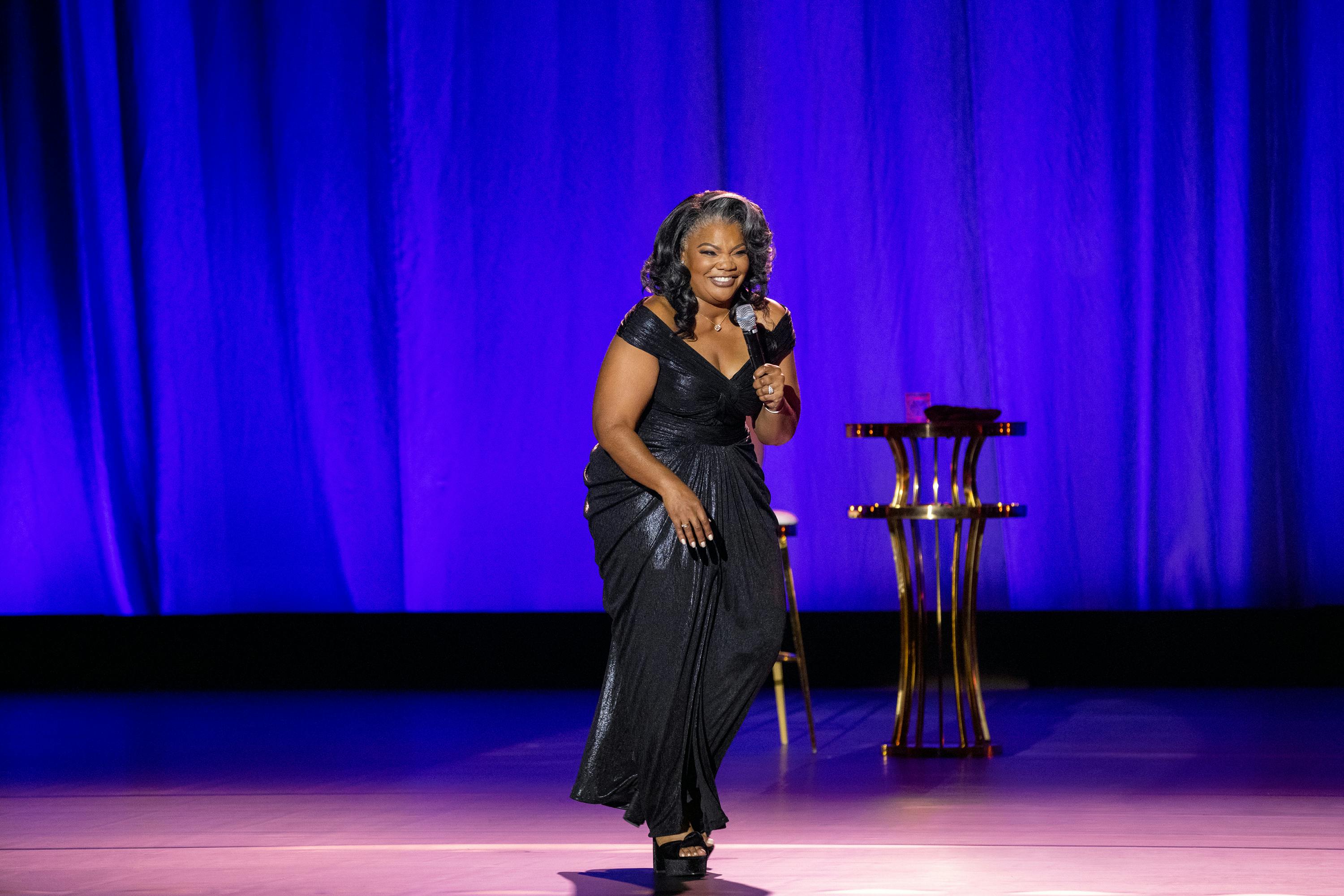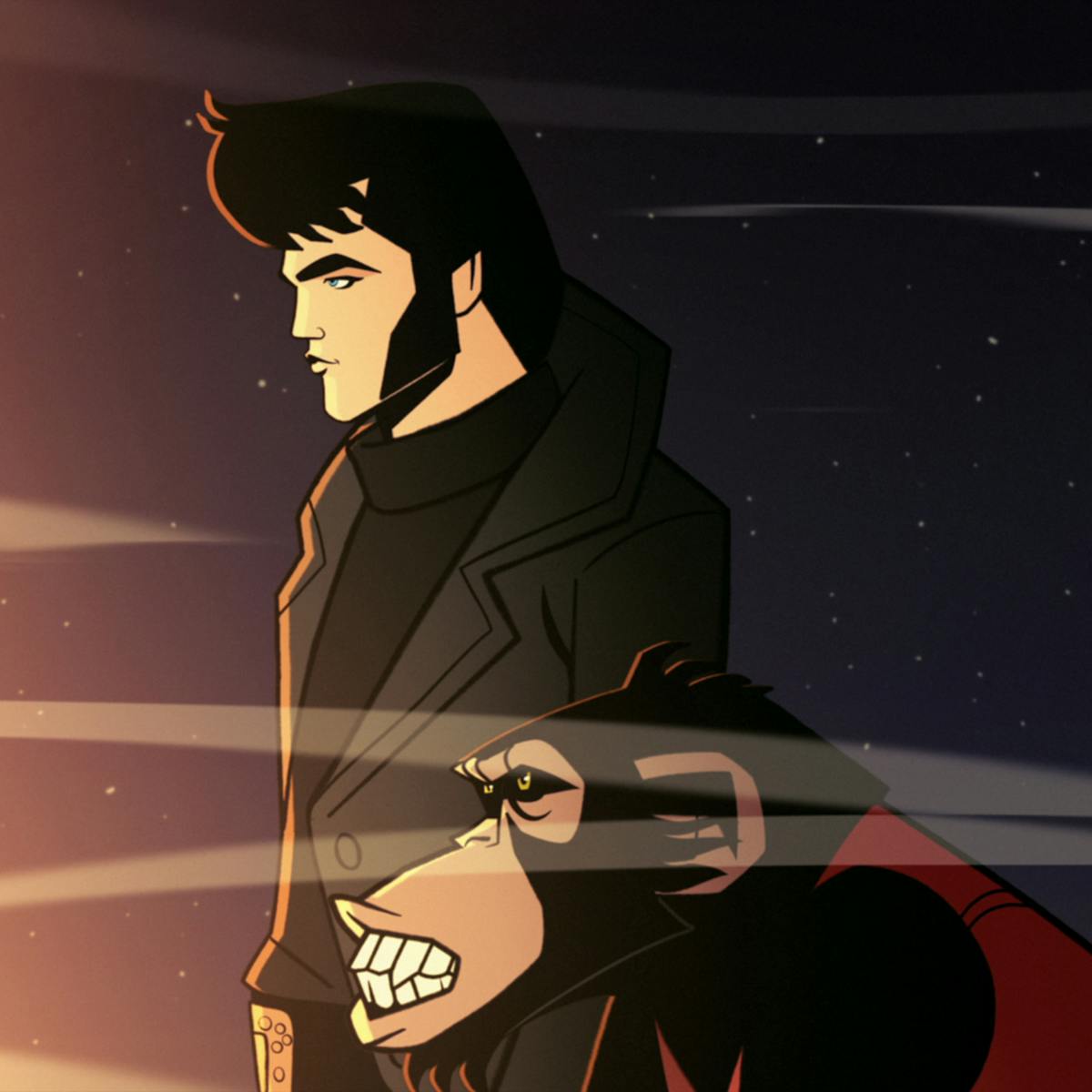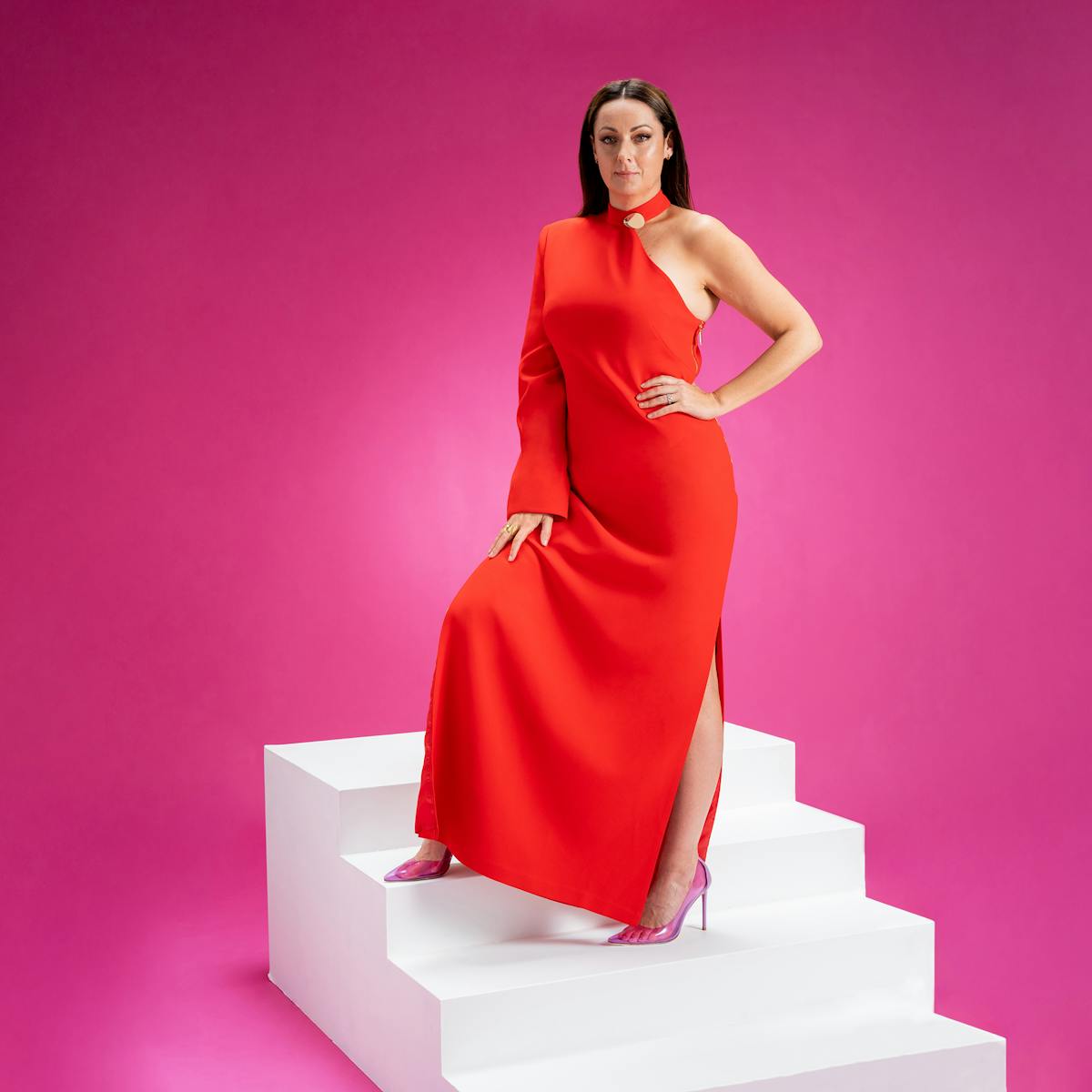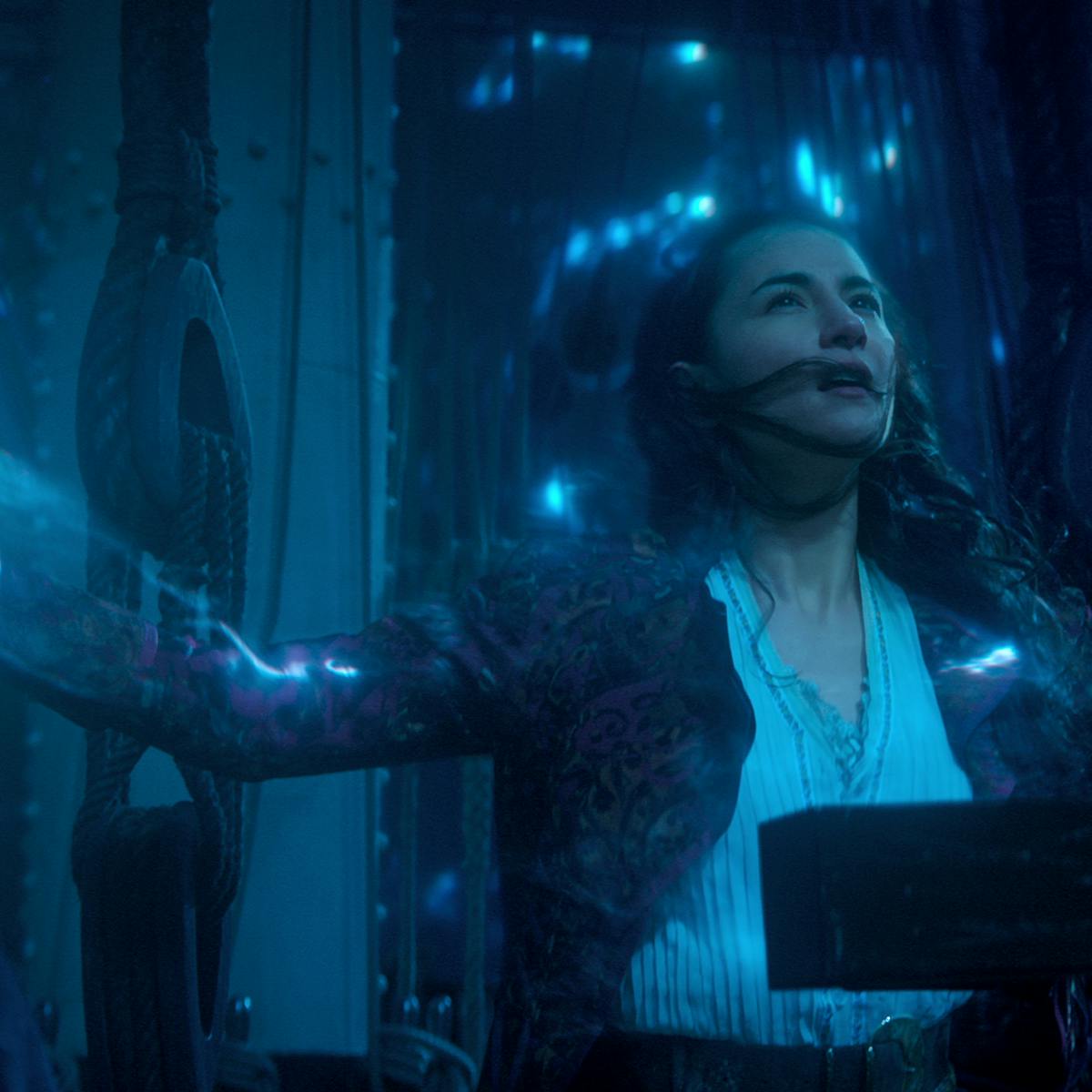The award-winning actor and comedian returns full-force with her new stand-up comedy special, My Name is Mo’Nique.
In 2010, Mo’Nique took home the Oscar for Best Supporting Actress for her fierce portrayal of an abusive mother in Precious: Based on the Novel ‘Push’ by Sapphire, and in 2015, she earned an Emmy nomination for her turn as blues legend Ma Rainey in Bessie. Yet Mo’Nique is perhaps still best known and loved for her comedy and TV hosting career, which spans 32 years of stand-up specials like The Queens of Comedy, a memorable five-year run on the hit sitcom The Parkers, and her own talk show, The Mo’Nique Show. And rightly so: In her latest comedy special, My Name is Mo’Nique, the comedian proves she’s still capable of wielding jokes with the precision of Muhammad Ali, floating across the stage before delivering a stinger of a punchline. The audience is with her all the way, laughing, and, at times, even crying.
In My Name is Mo’Nique, the comedian takes her signature brand of humor somewhere new, finding an opportunity to share her past in her own words and allowing fans a peek behind the curtain of Mo’Nique’s sometimes bumpy journey to stardom. Relentlessly funny and wise while broaching a wide range of subjects, the comedian connects the dots between her range as an award-winning dramatic actor and her prowess as a stand-up performer in the hour-long show. From honest stories of her school days and her time on The Parkers to intimate revelations about life with her family, Mo’Nique’s latest special is truly a reintroduction to a star we only thought we knew.
Mo’Nique chatted with Queue about some of the inspirations for her bold new comedy special, streaming April 4, 2023, and offered uplifting wisdom for her viewers.
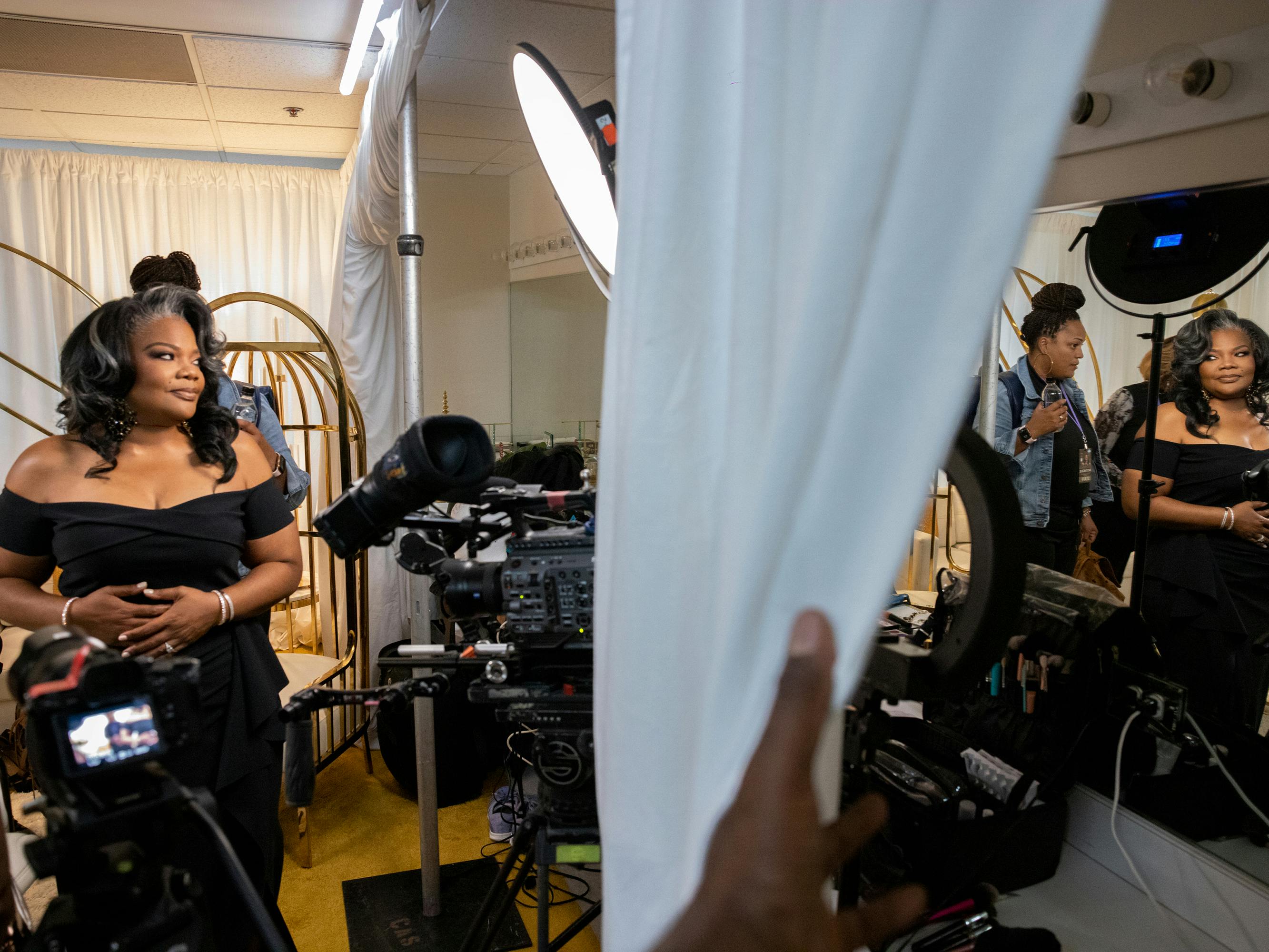
Mo’Nique
Miranda Tsang: The special is so raw and, of course, hilarious. What led you to get so personal and why was now the right time?
Mo’Nique: Miranda, I think that there’s so much going on in this world and this society that we still have people who are very afraid to live. We still have people very afraid to let go of trauma. We still have people very afraid that if they say something out loud, they’ll be thrown away. For me, doing this special in this moment, it was saying, “Be free, unapologetically.” Because you get one ride, Miranda. I have not yet met the person that said, “You know, this is my third time around. I left and came back.” I’ve not met them yet, so it is just to be free, baby. Live and ride your ride because it’s yours to ride.
You talked about your time in middle school in the special. Why revisit that period?
M: Those are very precious moments. Those are the developmental stages. Those are the stages where you begin to understand people and see people, and you begin to be able to pick and choose how you want to go, and how you want to deal, so I think that it’s relatable because all of us have been in school.
We all know what it’s like to be in that position of, Am I popular? Am I not popular? Should I say it? Should I not say it? We’ve all been there. The comedy special, for me, is relatable. I don’t care if you’re Black. I don’t care if you’re white. I don’t care if you’re Asian. I don’t care if you’re Italian. I don’t care if you’re homosexual. I don’t care what it is; every person that watches can say, “I can relate to that. I can understand that.” I’m sure if I said to you, “Miranda, tell me about somebody in your family that is having a hard time,” you could run them off.
If I said, “Miranda, tell me about the time you were in high school and you went through this,” you could run it off. The special, for me, is diverse. I am glad that they’re releasing this globally because my sister in the Bahamas can relate. My uncle in Honduras can relate. My friend in Zimbabwe can relate. So it’s a global conversation.
In the trailer, you say: “When you walk away from the special, you’ll say, ‘Now I understand that woman.’” And your title is a sort of reintroduction. What do you hope people take away and what do you want them to know about you?
M: I hope people take away, baby girl, freedom. I hope people take away fearlessness. I hope people take away love. I hope people take away what it means to know the word reciprocity. I hope people take away: Grow up. I hope people take away: Secrets make you sick. There’s so much I hope people take away, and I hope they laugh so hard til they pee. Now, let me just say this to you, Miranda, if anyone over 50 — I’m 55 — is going to be watching, it might get you in a position where you tinkle just a little bit, and you gotta get up and excuse yourself. I’m hoping it makes you feel better. I’m hoping it makes you laugh out loud. I’m hoping it makes you think.
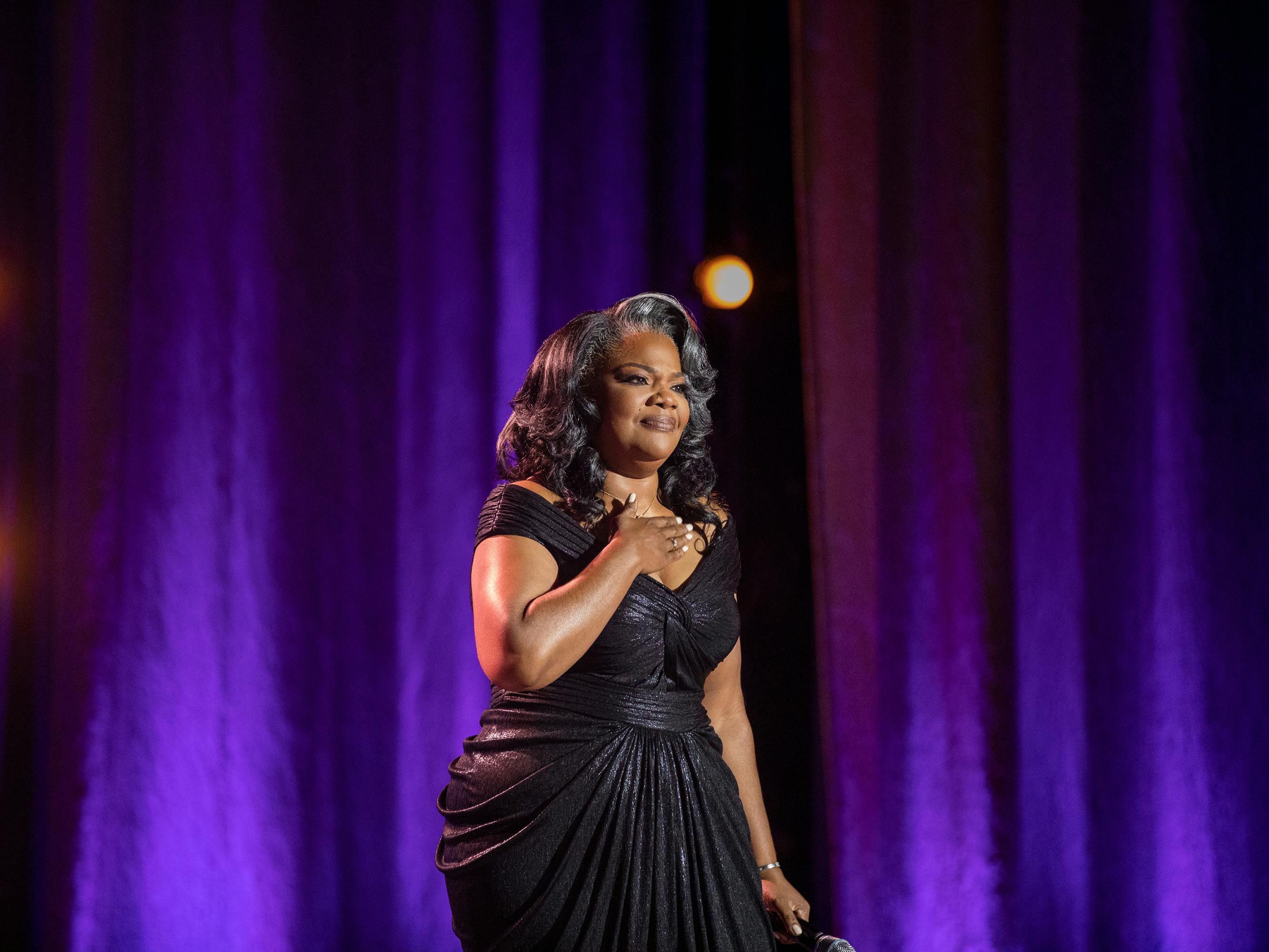
Mo’Nique
32 years in Hollywood: Do you have any advice or words of wisdom about how you stayed in the game so long and stayed so true to yourself?
M: The best advice that I could give is this: When you look in the mirror, let the person looking back be okay with you. The moment the person looking back is not okay, you know there’s a problem because you’ve now sacrificed your principles, your morals. You’ve now done things, baby, just to get a star or just to say, “I’m famous,” that you know you can’t look at yourself. I would say to anybody coming into this business, or just in life — we put so much on Hollywood. If when you wake up in the morning and you look at that person in the mirror and you say to that person out loud, “How we doing?” And that person says back, “I’m ashamed,” you know you have a problem.
But if that person says back, “I’m so damn proud of us, baby. Come on, let’s go get it,” then you know you’re on the right track. That’s it. It’s no special formula, it’s no secret, it’s no magic. You know what principles and values and morals are. You know right from wrong. You know what it is to exploit, take advantage. You know what it is to bully and to use. You also know what it is to be patient and kind and loving and understanding and respectful, so use your good damn sense and that’s how you stay on track in a place called life.
They say comedians are the modern philosophers and you’re fully embodying that right now. How did you get to this place of wisdom?
M: Well, I have to give [credit] to my husband because I have a great teacher. I have a great nurturer. I have a great provider. I have someone, Miranda, that when you look at this special and you hear me saying what I’m saying, my husband grew me up, and I’m 55 years old. When I say, “My husband loved me when I was at my worst like I was at my best,” the things I’m saying are because I’m being taught and I’m being shown through his actions, which allow me to say it out loud. But I’m not the one to say, “Yes, honey, let me feed your soul,” because that’s dangerous. I’m grateful that I have a great teacher and a nurturer that allows me to absorb what I’m being taught, and then I can say it out loud.
